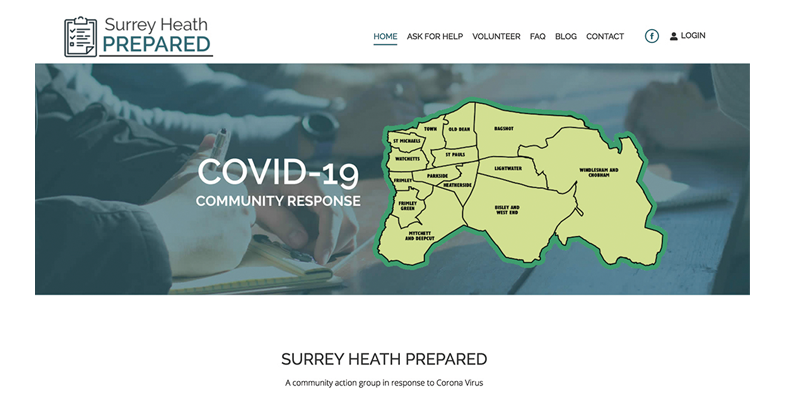How the concept of ‘neighbours helping neighbours’, underpinned by scalable technology, has helped over 5,000 vulnerable residents… In the middle of March this year, I received a call from a prominent local politician, asking if I could spare a few hours to attend a meeting. He wanted me to advise on how the local community should respond to the looming coronavirus crisis.
As a crisis and risk management expert, I was very happy to drop everything to help. Admittedly at this point, I knew nothing about community response and volunteering organisations; all of my clients are businesses, schools and housing providers.
Previously, I supported clients through Hurricane Sandy, but those were businesses and this was residents in a local community. Furthermore, I was not emotionally or physically involved in any previous incident I had worked on.
Arriving at one of the local churches for the meeting, I was introduced to my new colleagues. The penny dropped that this was not a two-hour brain dump – we had serious work to do! Looking around the room, I could see the recently-retired CEO of the Brigade of Gurkhas, James Robinson CBE, Reverend Mike Thomason (local vicar and military veteran) and Dr Alasdair Pinkerton (world-renowned geopolitics lecturer and parliamentary candidate in the 2019 election). With this team, I knew straight away that we could do great things.
Later that day, we met the CEO of Surrey Heath Borough Council and agreed to create a new organisation to support 88,000 local residents. All we needed from them was a few thousand pounds to get mobilised and an assurance that they wouldn’t interfere.
We immediately received the green light and ‘Surrey Heath Prepared’ was born. Five short weeks later, this organisation has recruited 2,841 volunteers and fulfilled 3,220 requests for help.
Surrey Heath Prepared has even been described by our local MP and Cabinet Minister, Michael Gove as “the gold standard for community response.”
This article has been written for a technology magazine. So here is the tech piece…
As we sat down to discuss the new organisation, we quickly realised that we would need to scale quickly to deliver the work and achieve resilience for the weeks and months ahead. We also knew the new organisation would be processing a lot of sensitive data, both for volunteers and those needing help. The ‘lick it and stick it’ Google form and Google spreadsheets we inherited were simply not going to last the distance.
As I already ran the SaaS-based TrackMyRisks platform for governance, risk and compliance management, I had a software development team on the payroll so I immediately adopted the role of ‘the tech guy’ and enlisted my team to make some magic happen.
Step one
We modified the Google Sheets environment to create 18 area-based spreadsheets that would synchronise with the master sheet. This was a nightmare but freed up two volunteers who were manually processing data and therefore cut the error rate. Most importantly, it bought some breathing space for my development team to work.
Step two
Within one week, the development team had built a WordPress-based database and mobile-responsive user interface that allowed us to turn off the spreadsheets and dramatically improve efficiency for our area coordinators. We also added some new features such as job reference numbers, data filtering and work assignments.
Step three
Neighbouring local authorities heard about our system and asked if they could ‘have a copy’ of our platform. As SaaS people, we never fork code so instead we created the IsPrepared community response system which has been implemented by Hart, Spelthorne, Runnymede and Marlow councils and is available free of charge to any other councils and community groups that need it.
Step four
We have now redeveloped and improved the platform to run on the AWS service stack (a huge thanks to AWS for its support). The migration of the live sites to the new stack starts this weekend (at the time of writing).
Positive legacy
We don’t know how long the pandemic will go on for but we do know that the concept of community response at scale, organised around local areas and low-cost technology, will be a positive legacy of this hideous virus.
I am proud that my team has played a part in helping to ease suffering and demonstrate to me that they can deliver an awesome product at lightning speed.
Matt Hodges-Long is the co-founder of TrackMyRisks.



